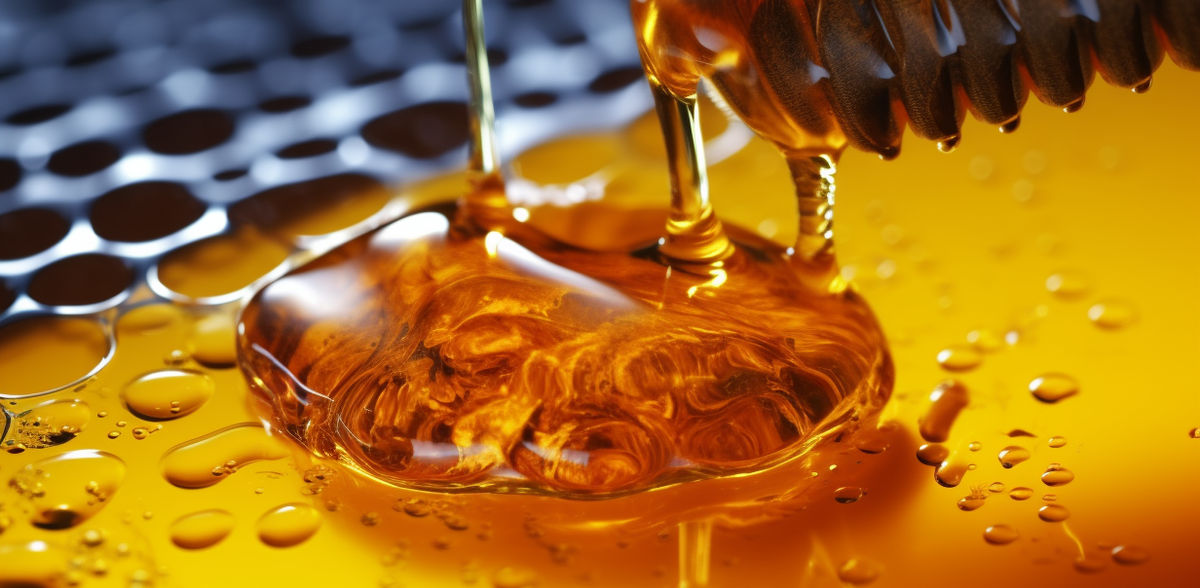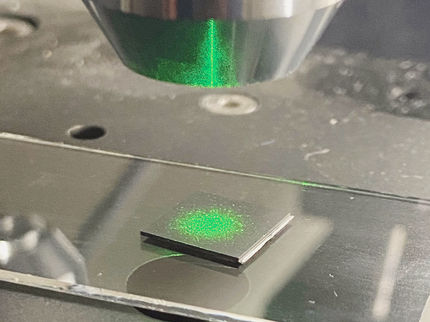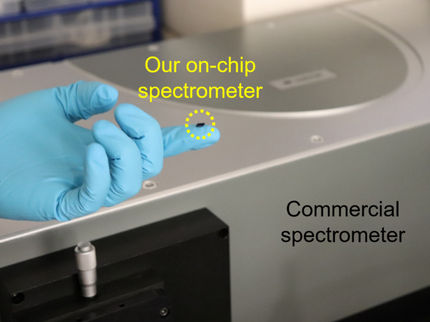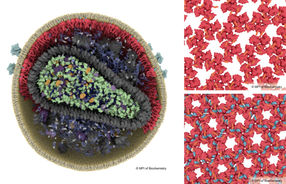Aston University technology to combat the not-so sweet practice of honey fraud
Light technology to be used to detect if honey is blended with cheap additions
Aston University and The Scottish Bee Company are joining forces to help combat the not-so sweet practice of honey fraud using the science of light.
Globally honey adulteration is the second most common food fraud, following milk. With help and support from the British Beekeepers Association and the Honey Authenticity Network UK, they are developing technology to detect if honey has been blended with cheaper additions such as sugar syrup.
Earlier this year the EU study From the Hives stated that of 10 samples from honey exported from the UK all were flagged as suspected of being adulterated. Although they have been blended or packaged in Britain, the honey might have originated overseas.
Researchers at the University’s Aston Institute for Photonic Technolgies (AIPT) and The Scottish Bee Company have been awarded an artificial intelligence feasibility study grant from Innovate UK, part of UK Research and Innovation to develop honey authenticity testing technology.
Honey samples will be examined using a light-based technique called FLuorescence Excitation-Emission (FLE) spectroscopy combined with machine learning to create a fast and reliable testing method.
Current techniques, such as chromatography, nuclear magnetic resonance and sensory analysis are expensive and time-consuming.
The University team is led by Dr Alex Rozhin, reader in nanotechnology within Aston Institute of Photonic Technologies (AIPT). He said: “The project aims to enhance consumer confidence, elevate product value, and safeguard the reputation of British honey.
“The team will utilise advanced machine learning techniques, specifically parallel factor analysis (PARAFAC) and partial least squares discriminant analysis (PLS-DA), to analyse honey samples. “These techniques offer the capability to identify the chemical constituents, assess their ratios, and determine quality markers within the samples.
“By combining the rapidity, precision, and optical capabilities of FLE spectroscopy with machine learning algorithms, the project aims to surpass existing state-of-the-art methods for assessing the quality of honey.”
The Scottish Bee Company will be sharing its expertise in honey production to inform the research. Iain Millar, director of The Scottish Bee Company said “Honey fraud isn’t just a consumer rights issue, it has far reaching implications for food security, land use and biodiversity.
“Aston University has a wealth of expertise in the area of food fraud, and we are glad to be working with their team and our colleagues at the BBKA to protect the integrity of the UK honey market.”
The also project involves Lynne Ingram, master beekeeper and founder of Honey Authenticity Network UK (HAN UK). She said: HAN UK has been campaigning for years to raise awareness of the issue of honey adulteration globally and in the UK.
“We are delighted to be working with Aston University, The Scottish Bee Company, and the British Beekeepers Association on the development of this exciting new test, that will go some way to overcoming the problem of honey fraud in the UK.”
The British Beekeepers Association (BBKA) will lend its expertise and help with collection of honey samples. Julie Coleman, master beekeeper and chair of the research, technical and environmental committee of the BBKA said: “Adulterated and fake honey is of great concern to our members and we are pleased for the opportunity to collaborate with all partners to collect and supply authentic honey for analysis.
“We hope that our samples can be used to prove the methodology and application of this exciting new technology.”
The research will take place at Aston University and will involve team members Dr Raghavan Chinnambedu-Murugesan, Dr Steve Daniels and Dr Valentina Barker.
Director of AIPT Professor Sergei Turitsyn said: “I am delighted for Alex and the team he leads.
“Research into the applications of photonics in food industry and agri-tech in AIPT started from the establishing of The Wolfson Centre for Photonics for Food and Agri-Tech funded by the Wolfson Foundation.
“This area was further supported by the Garfield Weston Foundation. We are extremely grateful to these charities for their support and we will continue to deliver for society, science and UK industry.”
The current project is expected to continue for six month and to translate into a UK-wide project that will create a comprehensive database of UK honey samples and develop portable instruments for honey sampling and detection.
See the theme worlds for related content
Topic World Spectroscopy
Investigation with spectroscopy gives us unique insights into the composition and structure of materials. From UV-Vis spectroscopy to infrared and Raman spectroscopy to fluorescence and atomic absorption spectroscopy, spectroscopy offers us a wide range of analytical techniques to precisely characterize substances. Immerse yourself in the fascinating world of spectroscopy!

Topic World Spectroscopy
Investigation with spectroscopy gives us unique insights into the composition and structure of materials. From UV-Vis spectroscopy to infrared and Raman spectroscopy to fluorescence and atomic absorption spectroscopy, spectroscopy offers us a wide range of analytical techniques to precisely characterize substances. Immerse yourself in the fascinating world of spectroscopy!





























































